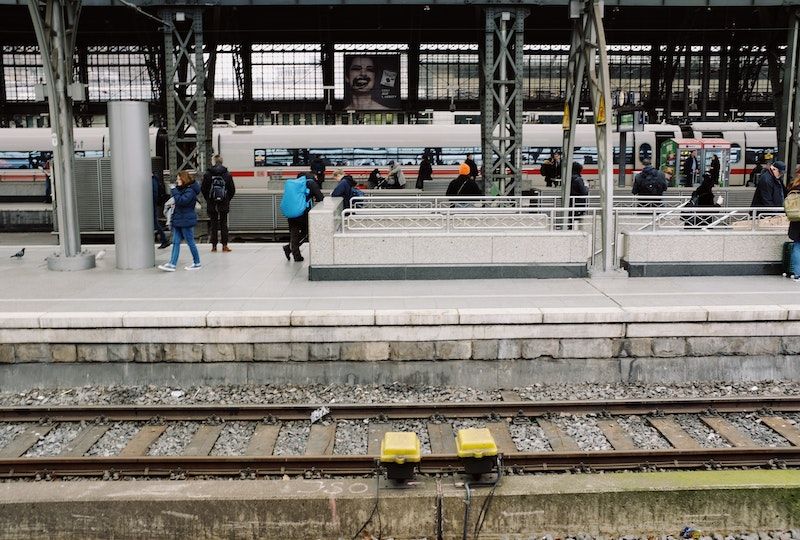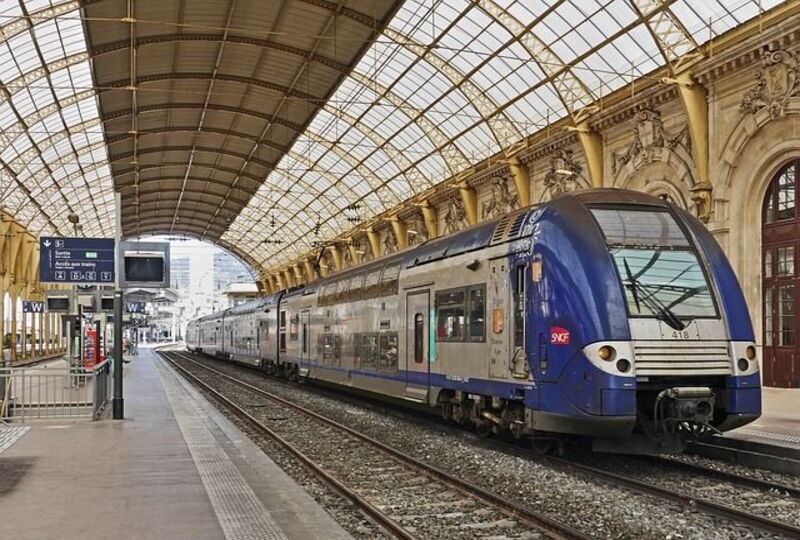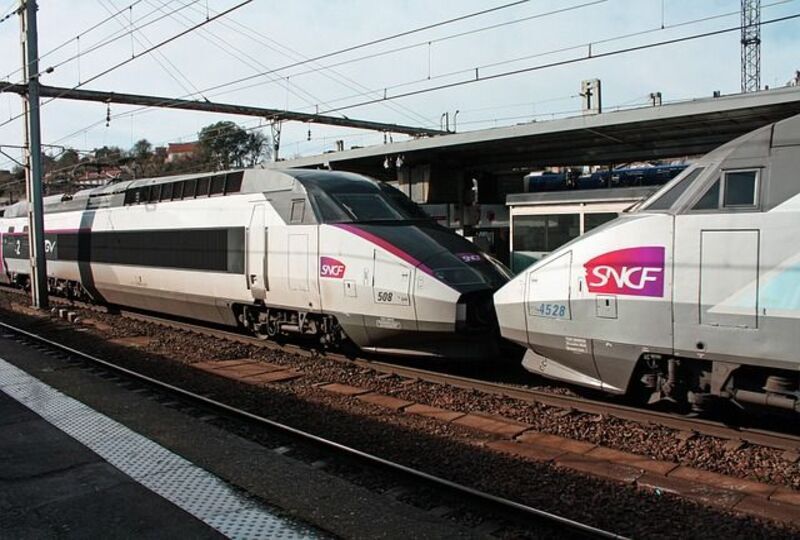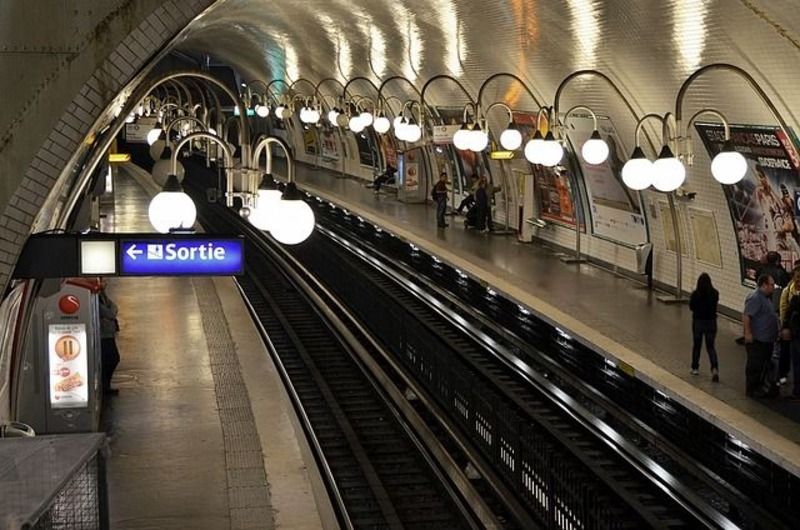Getting Around: French Vocab to Help You on Public Transit

As a French language learner, the odds are high that at some point in your life, you're going to want to try your hand at living in a French-speaking area. No matter where you end up, knowing how to get around in French is a vital part of sounding fluent in the language. After all, public transit may not always be intuitive and no French learner wants to realize that, after months of studying French, they don't know how to ask where the metro is.
Before you set off on your grand French adventure, take a look below at some of the French vocab and navigation tips so that you don't have to struggle with getting around in French.

Tips for Navigating Public Transport
Here's the thing about public transport: You can know all the words and be fluent in French, but that may not be enough to get you from Point A to Point B in your travels.
Although most public transportation systems operate similarly, preparing yourself for the French public transport system is a good way to ensure that you have an upper hand when you arrive. To help you out, here are some tips to keep in mind whether you're in France, Quebec, or Africa.
#1. Know What to Expect
If you've ever taken public transportation, then you already have a leg up on French learners who haven't.
In most cases, you'll have options: train, bus, tram, or metro. Oftentimes, you can use more than one method to get around. Depending on the time of day and traffic conditions, one option may be faster than another.
Wherever you plan to go, do some research into the local public transit options before you land. Look up where you can buy tickets, if an online option exists, and if there are apps made specially for the local or national transit system. This will help you feel more prepared and speaking French won't be as nerve-wracking.
#2. Secrets to the Parisian and French Public Transport System
Most French language learners dream of going to Paris. Whether you're drawn in by the romance of the city or it's just a way for you to practice your French, most French learners will find themselves in Paris at some point in time. Luckily for you, I've spent a few years uncovering the secrets to the Parisian and French public transit system that I'll share with you now.
In France, public transport tickets can be bought at most train, metro, and tram stations. Look for little machines and don't be afraid to buy an extra ticket or two. You never know when you might end up somewhere without a way to buy a ticket.
To ride the buses, you'll need to either have a ticket already or be prepared to pay exact cash. In some cities (Paris included), you have the option to text your bus number to a 5-digit number and pay for your bus ticket this way. This isn't available for all lines, though, and it will send the charge to your phone bill rather than ask for your credit card information.
If you've been learning French for a while, you're probably well acquainted with the French tendenacy to go on strike. Unfortunately, there's nothing you can do to prevent this, so just be aware and on the lookout for any signs that may warn you of an upcoming strike or travel disruption.

French Vocabulary to Know
Now that you have some tips in mind, it's time to dive into the real reason you're here: To learn some important French vocab to help you get around.
When using public transit, you'll want to be able to understand written announcements, read maps and signs, and get a general idea of what someone is saying overhead. While I can't tell you everything that you may hear or see, here are some of the most common phrases you should know while traveling.
Written and Spoken Announcements
If you haven't started studying any travel phrases, check out this article on basic French travel words. You'll need to have a good base in French to build upon, but once you have those basics down, here is some more nuanced French vocabulary and phrases to know.
In most cases, these phrases will be written on the departure board or near the platform as well as spoken aloud.
- À l'heure: On time
- Retard indiqué/prévu: Delay expected
- À voie: At the platform
- Départ imminent: About to depart
- Supprimé: Cancelled
- Prochain arrêt: Next stop
- À cause de travaux sur la route...: Due to construction on the route...
- À cause des grèves...: Due to strikes...
Now here are some phrases that you'll probably hear, but not see. Make sure to acquaint yourself with them so that you aren't embarrassed when the controller or another traveler tries to talk to you.
- Billet, s'il vous plaît: Ticket, please
- Arrivée en gare: Arrived at the station
- Pour votre sécurité attention à l’espace entre le train et la bordure du quai: For your safety, mind the gap between the train and the platform.
- Mesdames, messieurs, votre attention s'il vous plaît: Ladies and gentlement, may I please have your attention?
- Voie X, le train TER/TGV numéro XXXX en provence de ____ et à destination de ____ arrive en gare: Platform X, the train TER/TGV number XXXX from ____ to ____ is arriving.
- Eloignez-vous de la bordure du quai: Step away from the edge of the platform.
- Terminus: End of the line

TGV Travel Vocab
In France, you have the option to travel by TGV to most cities in the country. This is a great way to see the countryside and explore France as a whole, but it does mean you'll probably be faced with more complicated vocabulary.
Fortunately, you don't need to know every single word that's being said. Most TGV trains use the same formula for their announcements and tweak it to be relevant to your travel destination. Nevertheless, here are some things you will most likely hear when traveling by TGV.
- Mesdames, messieurs, dans quelques instants notre TGV desservira la gare de ____: Ladies and gentlemen, in a few moments our TGV will arrive at the station of ____
- Bienvenue dans le TER/TGV XXX à destination de ____. Ce train desservira les gares de...: Welcome aboard the TER/TGV XXX destined for ____. This train will service the stations of...

Practicing Your New Vocab
Part of learning the French language is practicing it. While being able to read in French is important, it's just as important (if not moreso) to be able to speak and understand spoken French.
It's really important to practice all aspects of a language when you're learning it, so even if you live far away from a French-speaking country, check out some online resources so you can find someone to practice with. Speechling's blog has a few great tips for French language learners of all levels, but this article on finding free French conversation partners is especially great.
When it comes to listening to your new French vocabulary, here is a good YouTube video in slow French. If you really want to test your French comprehension and try listening to announcements spoken in real-time, here is an authentic train announcement to listen to.
As you listen to the announcements, pause the videos and practice saying them yourself. This will not only improve your speaking abilities, but will help you become better acquainted with the announcements and be able to recognize them faster.

Bon Voyage!
Traveling somewhere new is always exciting, a little scary, and complicated, but it's a fantastic way to practice your French in real life. Even if you aren't a very advanced French speaker, learning the French travel vocab above will help you feel more prepared to take on your next adventure, so get out your passport and start planning because you're ready to take on the French speaking world!
